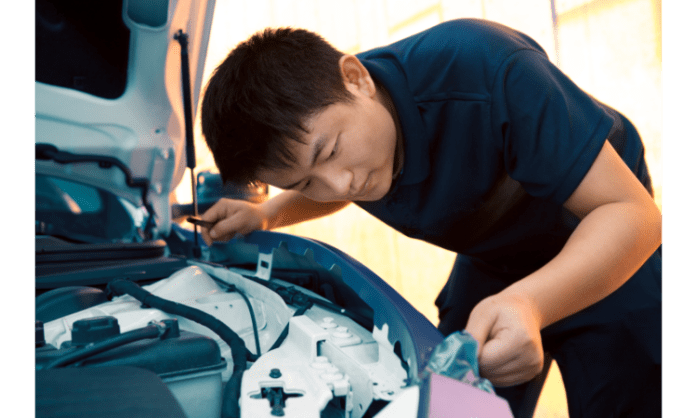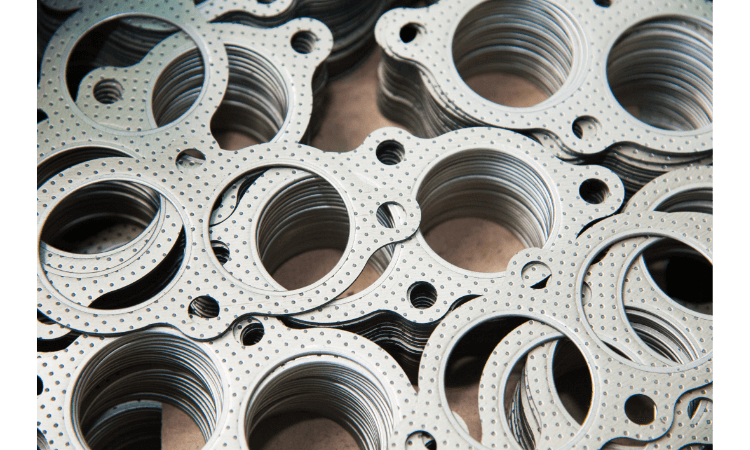
Oil Leak Causes
Oil leaks can be caused by a number of things. Many people assume that oil leaks are just a normal part of owning an automobile, but that’s not always true. Engine problems can cause oil leaks, as can engine wear and neglect. Improper maintenance and inadequate installation are also common causes of engine oil leaks.
Why do Oil Leaks occur?

Oil leaks in your vehicle can be caused by several factors, including:
- A loose or damaged oil filter (or gasket)
- Seized valve cover bolts
- A leaky oil pan gasket
As you can see, there are a number of different things that could be causing your engine to leak oil. It’s important to understand which component is leaking before you attempt any repairs—otherwise, you may end up wasting time and money on the wrong part!
Effect of Engine Oil Leaks

Oil leaks can be a serious problem, especially if your vehicle is new. Engine oil keeps the pistons from cracking and helps to keep them lubricated, which in turn reduces wear on the engine components. Oil also helps stabilize engine temperatures, which is important for its longevity and efficiency. If too much oil is lost due to a leaky seal or gasket, it can lead to serious damage:
- Engine Damage – Oil will not only reduce friction between moving parts within an engine but also act as a coolant for those parts. When too much oil has been lost through leakage or evaporation (due to excessive heat), overheating will occur as there won’t be enough lubrication between moving parts. This can lead to blown gaskets or warped cylinder heads—and even worse things!
- Engine Failure – The problem with overheating an engine too much—even if it doesn’t completely fail—is that it’s very likely that some part of your engine will fail from overuse due to lack of proper care and maintenance; this includes seals & gaskets but also pistons & cylinders which are made out of softer metals than steel but still require enough lubrication so they don’t wear down prematurely (which would cause premature wear on other components).
How to avoid Engine Oil Leaks

- Oil leaks can be avoided by having your oil checked and replaced regularly.
- Check the level of engine oil in your vehicle at least once a month, and make sure to check it before heading out on long journeys.
- Replace your oil filter every six months or 7,500 miles (12,000 kilometers), whichever comes first.
- Replace the oil pan gasket every 24 months (48,000 kilometers). This is an inexpensive part that will help prevent more serious damage from occurring down the road if left unaddressed for too long.
How to Detect Engine Oil Leaks Early?

- Check the oil level. If you’re not sure how to check your oil, ask someone who knows more about cars than you do (like a mechanic) for help.
- The next step is to check the condition of your oil filter and make sure it’s still in place.
- You’ll also want to take a look at your engine pan, which is underneath where you’d normally be changing an oil pan. Make sure there’s nothing wrong with it—a leak in this area could cause problems over time because fluids will get onto other parts of your engine, causing corrosion and other issues that could cost money down the road if left untreated for long enough periods of time.
- Finally, examine all hoses connected between these areas just as we talked about earlier: they should all be firmly secured onto their respective places without any visible cracks or tears anywhere along their lengths!
Should You Drive With a Bad Oil Leak?

It is important to understand that there are instances when driving with a bad oil leak is the right thing to do. In this section, we will discuss the reasons why you should drive with an engine oil leak until you can get it fixed:
- Driving your vehicle may help detect the cause of the leak. When you drive your vehicle, it puts stress on parts of your engine and can cause more problems if they’re already there. If this happens, you’ll know where to look further for leaks so that they can be repaired as soon as possible.
- Driving your vehicle will also help determine how much oil you are losing from one day to another. Depending on what type of car or truck owner (or motorcycle rider) you are, knowing how much oil or fuel has been lost over time could save money in repairs later down the line because now at least we know what kind of work needs done!
In conclusion, engine oil leaks should be addressed as soon as they are noticed.
If you have engine oil leaks, it is important to address them as soon as they are noticed. While you can always wait until the leak gets worse and more expensive to fix, this often results in increased repair costs and added vehicle downtime.
In summary, the most effective way to avoid engine oil leaks is by taking preventive measures at each service interval. This includes checking for leaks on a regular basis and replacing worn gaskets when necessary.











